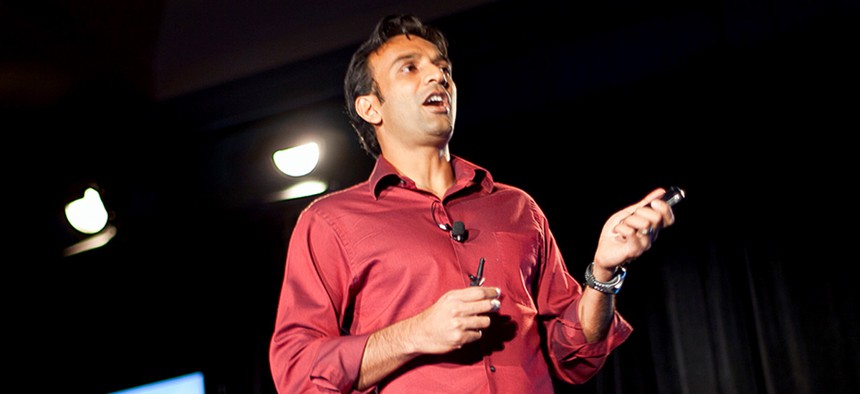White House Looking for Help on Personalized Medicine Technology

DJ Patil, the nation's first Chief Data Scientist Flickr user JD Lasica
The administration is collecting suggestions from the general public about improving personalized medicine.
The White House is looking for ideas about how to tailor medical treatments to each individual patient, based on genetic history and behavior.
President Barack Obama launched the national research effort, called the Precision Medicine Initiative, in January.he administration also set aside $215 million in the 2016 fiscal year budget directed to the National Institutes of Health, the Food and Drug Administration, and the Office of the National Coordinator for Health Information Technology.
Now, the administration is collecting suggestions from the general public about improving personalized medicine. In a new blog post, White House chief data officer DJ Patil and PMI project manager Stephanie Devaney said they wanted ideas about topics including:
- How to include underserved populations in precision medicine research
- Developing new APIs in electronic health record systems to help patients access their clinical data and then donate it for research
- Improving information sharing between organizations
- Data storage technology
- Using open competitions and technology challenges to generate more new ideas
The PMI team is collecting feedback until Sep. 21.
PMI's near-term goals, according to NIH, include using individualized medicine to improve cancer treatment. Eventually, as part of the same effort, the team aims to begin an study of at least 1 million Americans.
In the White House blog post, Patil and Devaney noted that will require close cooperation between the public, health care providers, researchers and the government.
Despite progress -- such as an uptick in the adoption of electronic health records,"there is still more work to do," they wrote. "Too many people are unable to access, share or move their health data easily."





